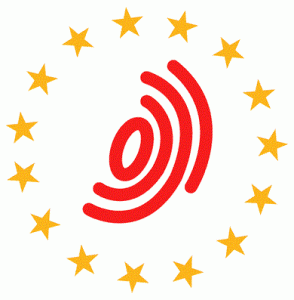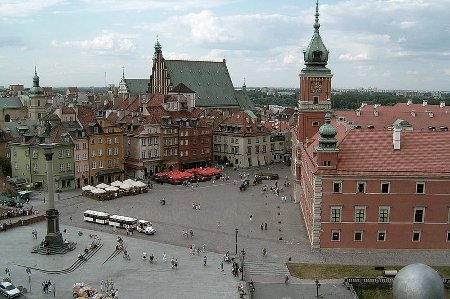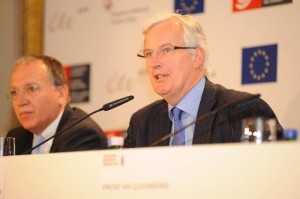On November 22, 2011, the General Secretariat of the Council of the European Union has sent Document 17317/11 to the Permanent Representatives Committee (COREPER Part 1) titled Draft Agreement on a Unified Patent Court and draft Statute – Draft Declaration for an operational UPC – Revised Articles 18, 19, 58, 58a, 58d and 59. Following up to discussions having taken place in the Permanent Representatives Committee on November 18, 2011, on the basis of the Note to the Permanent Representatives Committee contained in 17120/11 REV 1 (not published), the Polish EU Presidency has submitted, for discussion on November 23, the following texts :
- A draft Declaration, to be made by the Contracting Member States upon signature of the Agreement, ensuring that the future Unified Patent Court shall be operational at the moment its enters into force (see Annex I) as referred to in point 8 of the above Note;
- Revised drafts for Articles 18, 19, 58, 58a, 58d and 59 (changes in relation to the previous version set out in 16741/11 are underlined) (see Annex II), which reflect proposals of the Presidency as outlined in the above Note.
The Draft Declaration sets out the political will power not only to rush the Unified Patent Court (UPC) through as fast as possible but also to make sure that it will be operational immediately after it has been formally set up (Annex I):
Continue reading »
Even beyond the Draft Report on a jurisdictional system for patent disputes (Rapporteur: Klaus-Heiner Lehne) reported earlier (here and here) there appear to exist a number of interesting papers of the Committee on Legal Affairs of the European Parliament (JURI) available on-line:
- Document PE472.331v01-00: Amendments 1 – 25 / concerning “Motions for a resolution” – Draft report by Klaus-Heiner Lehne (2011/2176(INI)) – Jurisdictional system for patent disputes;
- Document PE472.334v02-00: Draft Report on the proposal for a Council regulation implementing enhanced cooperation in the area of the creation of unitary patent protection with regard to the applicable translation arrangements (COM(2011)0216 – C7-0145/2011 – 2011/0094(CNS)) including Amendments 1-19; Rapporteur: Raffaele Baldassarre;
- Document PE472.334v02-00: Amendments 20 – 47 / Draft report by Raffaele Baldassarre (2011/0093(COD)) - Enhanced cooperation in the area of the creation of unitary patent protection with regard to the applicable translation arrangements; and
- Document PE472.059v02-00: Draft Report on the proposal for a Regulation of the European Parliament and of the Council implementing enhanced cooperation in the area of the creation of unitary patent protection (COM(2011)0215 – C7-0099/2011 – 2011/0093(COD))including Amendments 1 – 44; Rapporteur: Bernhard Rapkay; and
- Document PE472.059v02-00: Amendments 45 – 94 / Draft report by Bernhard Rapkay (2011/0093(COD)) - Proposal for a regulation of the European Parliament and of the Council implementing enhanced cooperation in the area of the creation of unitary patent protection / Proposal for a regulation (COM(2011)0215 – C7-0099/2011).
These papers apparently have been discussed during the recent meeting of the Legal Committee held on November 21-22, 2011, in Brussels (Document PE475.963v01-00). I have no clue so far as to the outcome of that session.
Continue reading »
In a reference for a preliminary ruling from the Rechtbank van eerste aanleg te Brussel (Belgium) to the Court of Justice of the European Union lodged on July 19, 2010 (Belgische Vereniging van Auteurs, Componisten en Uitgevers (Sabam) v Netlog NV, Case C-360/10), a legal question was posed as follows:
Do Directives 2001/29 ( 1 ) and 2004/48, ( 2 ) in conjunction with Directives 95/46, ( 3 ) 2000/31 ( 4 ) and 2002/58, ( 5 ) construed in particular in the light of Articles 8 and 10 of the European Convention on the Protection of Human Rights and Fundamental Freedoms, permit Member States to authorise a national court, before which substantive proceedings have been brought and on the basis merely of a statutory provision stating that: ‘They [the national courts] may also issue an injunction against intermediaries whose services are used by a third party to infringe a copyright or related right’, to order a hosting service provider to introduce, for all its customers, in abstracto and as a preventive measure, at its own cost and for an unlimited period, a system for filtering most of the information which is stored on its servers in order to identify on its servers electronic files containing musical, cinematographic or audio-visual work in respect of which SABAM claims to hold rights, and subsequently to block the exchange of such files?
This case throws a spotlight on a phenomenon which has become ubiquitous in the age of the Internet: When there is a case of wrongdoing related to the digital domain, stakeholders find that often it is inconvenient, sometimes even practically impossible to go for the primary wrongdoer because of difficulties to identify him or her or because of the wrongdoer is seated in a foreign jurisdiction which might be less than co-operative due to a variety of reasons. Cases based on some sort of infringement of IP rights and related to the digital domain are notorious for this kind of scenario.
So why not going for the intermediaries, which are plenty and inevitable necessary for running the Internet, some of them surely located in your own jurisdiction or at least in a foreign jurisdiction which shows a co-operative habit, many rights holders may ask themselves.
Continue reading »
It has just now come to my attention that on September 23, 2011, the Committee on Legal Affairs of the European Parliament has published a Draft Report on a jurisdictional system for patent disputes (2011/2176(INI)) (Rapporteur: Klaus-Heiner Lehne). The document comprises a text of a motion for a European Parliament resolution on a jurisdictional system for patent disputes (2011/2176(INI)) generally acknowledging that the establishment of a coherent patent litigation system in the Member States taking part in the enhanced cooperation should be accomplished by an international agreement between these Member States creating a Unified Patent Court. However, there is an interesting twist:
Continue reading »
 It has become increasingly difficult to kept a clear view on what exactly is discussed in the ongoing discourse on the various proposals and drafts for a European Patent with unitary effect (i.e. the Unitary Patent) and a Unified Patent Court.
It has become increasingly difficult to kept a clear view on what exactly is discussed in the ongoing discourse on the various proposals and drafts for a European Patent with unitary effect (i.e. the Unitary Patent) and a Unified Patent Court.
In order to retain a clear overview on the essential legal and political concepts of those two drafts, I extracted and sketched their main features based on the “Proposal for a Regulation [...] implementing enhanced cooperation in the area of unitary patent protection” dated 23 June 2011 (Document 11328/11) and the “Draft Agreement on a Unified Patent Court and draft Statute” dated 19 October 2011 (Document 15539/11). Please enjoy.
Yesterday I wrote a post reporting on the publication of EU Council Document 15539/11 conveying another version of the Draft agreement on a Unified Patent Court and draft Statute. Apparently there seems to be some political desire to get this thing done – together with Draft Regulations implementing enhanced cooperation in the area of unitary patent protection (Document 11328/11) – by finalising the entire package by end of this year.
To me it is quite a bit open as to whether or not this ambitious target will be met. We are amidst a grave stress test of the Euro framework, perhaps even of the EU itself. And, members of the political elites in all of the EU Member States are extremely busy to pretend as if they were aware of any viable solution advising how to exit this situation which perhaps might be reported in future textbooks of history as the worst crisis of the European Union ever. Will there be sufficient time and political will power to sort out problems in the field of patent law? I remember well the months of the French EU Presidency from July to December 2008. Up to September 2008 there had been strong hopes that French President Mr Sarkozy to take the bull at its horns and force a political compromise in the nasty languages issue concerning the original proposal for a EU Community Patent covering all of the EU Member States, including Italy and Spain. But on September 15, 2008, Lehman Brothers had to file for bankruptcy, and the world was no longer the same as it had used to be. The French Government had to shift their priorities, and Mr Sarkozy did not make it to push a compromise towards the EU Community Patent during his time at the helm of EU Presidency.
If the approach now pending – ‘enhanced co-operation’ – succeeds, what will be the practical consequences of its implementation?
Continue reading »
On October 19, 2011, the Polish EU Presidency has issued Document 15539/11 titled Draft agreement on a Unified Patent Court and draft Statute – Revised Presidency text. Changes in relation to the previous as provided with the version as of Document 15289/11 are marked. The provisions in italics marked with square brackets are still being developed as their final version depends either on the drafting technique to be adopted or on the content of the planned Commission proposal on changes to the acquis communitaire itself. Articles 14b and 14c now read:
Continue reading »
On October 07, 2011, the Polish EU Presidency has sent Document 15289/11 to the Delegations of the EU Member States for carrying on with negotiating an Agreement for a Unified Patent Court during a technical drafting session to be held from October 12-14, 2011 in Warsaw. The Document is titled Draft agreement on a Unified Patent Court and draft Statute – Revised Presidency text. In the Draft, changes in relation to the previous version (Document 13751/11 + COR 1) are marked. Concerning this elder version see also my earlier post here.
Altogether, the amendments made in Document 15289/11 compared to the previous version of document 13751/11 appear to be more or less of a technical nature. In particular, some conclusions from the non-paper Document 14191/11 titled Compatibility of the draft agreement on the Unified Patent Court with the Union acquis appear to have been drawn. In particular, a new Article 15b now defines the relation of the Unified Patent Court with the jurisdiction of courts of States not party to this Agreement (i.e. Italy and Spain) as follows:
(1) The Court shall have jurisdiction any time the court or courts of a Contracting Member State would have jurisdiction on the basis of Regulation (EC) 44/20019 or, where applicable, on the basis of the Convention on jurisdiction and the recognition and enforcement of judgments in civil and commercial matters (Lugano Convention).
(2) Where proceedings involving the same cause of action and between the same parties are brought in this Court and (a) court(s) of States not party to this Agreement, the Court shall of its own motion stay its proceedings until the jurisdiction of the court first seized is established.
(3) Where the jurisdiction of the court of a State not party to this Agreement is established, the Court shall decline jurisdiction in favour of that court.
Furthermore, a newly introduced paragraph 3 in Article 14c indicates that
The law of non-contracting States shall be applicable where relevant and as provided by provisions of Union law, in particular on the basis of Regulations 593/2008 (Rome I) and 864/2007 (Rome II), or by international instruments.
I expect to get further news next week after the technical drafting session to be held in Warsaw is closed.
Yesterday the EPO News channel reported on a “renewed commitment to cost-efficient European patents” by the EPO and the European Commission. As nobody really had the slightest doubts on the continued and strong support by the project’s two main driving forces, this “news” does not sound that confident and persuasive as it apparenty was intended.
I cannot help, but to me it sounds more like political PR language or even autosuggestion if the President of the EPO, Benoît Battistelli, and the European Commissioner for the Internal Market and Services, Michel Barnier, jointly confess that “the unitary patent is [...] expected to simplify procedures and lower the costs for applicants by up to 70%“.
As reported by Reuters, representatives of Governments of eight nations, namely Japan, the United States, Australia, New Zealand, Canada, Morocco, South Korea and Singapore have signed ACTA on October 01, 2011 in Tokyo. A number of signatories involved in ACTA negotiations, including the European Union, abstained. This does, however, not mean that EU dissociate themselves from the Agreement – there are merely formal obstacles which have to be removed before a signature on behalf of the EU can be given. As reported earlier on this blog, preparatory work of EU Council is underway to sign and ratify ACTA. For further background, see also here.
Continue reading »
The k/s/n/h::law blog
Some of the patent attorneys of the KSNH law firm have joined their efforts to research what is going on in the various branches of IP law and practice in order to keep themselves, their clients as well as interested circles of the public up to date. This blog is intended to present results of such efforts to a wider public.
Blog Archives
- November 2013 (2)
- October 2013 (1)
- September 2013 (1)
- August 2013 (2)
- July 2013 (3)
- June 2013 (5)
- March 2013 (5)
- February 2013 (4)
- January 2013 (5)
- December 2012 (5)
- November 2012 (5)
- July 2012 (5)
- June 2012 (8)
- May 2012 (5)
- April 2012 (3)
- March 2012 (4)
- February 2012 (5)
- January 2012 (6)
- December 2011 (12)
- November 2011 (9)
- October 2011 (9)
- September 2011 (4)
- August 2011 (7)
- July 2011 (4)
- June 2011 (1)
Blog Categories
- business methods (6)
- EPC (7)
- EPO (12)
- EU law (92)
- ACTA (8)
- CJEU (4)
- Comitology (1)
- competition law (2)
- Enforcement (6)
- EU Unified Patent Court (62)
- FTA India (1)
- TFEU (2)
- Trade Marks (5)
- European Patent Law (37)
- German Patent ACt (PatG) (1)
- German patent law (5)
- Germany (6)
- Pirate Party (3)
- International Patent Law (4)
- PCT (2)
- IP politics (10)
- licenses (2)
- Litigation (5)
- Patentability (7)
- Patents (12)
- Piratenpartei (2)
- Software inventions (10)
- Uncategorized (9)
- Unitary Patent (24)
- US Patent Law (4)
Comments
- kelle on Germany: Copyright Protection More Easily Available For Works Of “Applied Arts”
- Time Limits & Deadlines in Draft UPCA RoP: Counting The Days - KSNH Law - Intangible.Me on Wiki Edition of Agreement on Unified Patent Court Agreement (UPCA)
- Time Limits & Deadlines in Draft UPCA RoP: Counting The Days | ksnh::law on Wiki Edition of Agreement on Unified Patent Court Agreement (UPCA)
- Wiki Edition of Agreement on Unified Patent Cou... on Wiki Edition of Agreement on Unified Patent Court Agreement (UPCA)
- European Commission Takes Next Step Towards Legalising Software Patents in Europe | Techrights on EU Commission publishes Proposal of amendend Brussels I Regulation for ensuring Enforcement of UPC Judgements
Blogroll
- 12:01 Tuesday
- America-Israel Patent Law
- Anticipate This!
- AwakenIP
- BlawgIT
- BLOG@IPJUR.COM
- BP/G Radio Intellectual Property Podcast
- Broken Symmetry
- Class 46
- Director's Forum: David Kappos' Public Blog
- Gray on Claims
- I/P UPDATES
- IAM Magazine Blog
- Intellectual Property Intelligence Blog
- IP Asset Maximizer Blog
- IP CloseUp
- IP Dragon
- IP Watch
- IP Watchdog
- IPBIZ
- ipeg
- IPKat
- ITC 337 Law Blog
- Just a Patent Examiner
- K's Law
- MISSION INTANGIBLE
- Patent Baristas
- Patent Circle
- Patent Docs
- Patently Rubbish
- PatentlyO
- Patents Post-Grant
- Reexamination Alert
- SPICY IP
- Tangible IP
- The 271 Patent Blog
- The Intangible Economy
- THE INVENT BLOG®
- Think IP Strategy
- Tufty the Cat
- Visae Patentes
The KSNH blogging landscape


This blog and the German-language sister blog k/s/n/h::jur link to the two popular and privately run blogs IPJur und VisaePatentes and continue their work and mission with a widened scope and under the aegis of our IP law firm.
ksnhlaw on Twitter
- No public Twitter messages.
 KSNH::JUR Feed (german)
KSNH::JUR Feed (german)- Ist Verschlüsselung passé? September 6, 2013Auf verschiedenen Feldern beruflicher Praxis ist dafür zu sorgen, dass Kommunikation vertraulich bleibt. Die trifft beispielsweise für Ärzte zu, aber auch für Anwälte, darunter auch Patentanwälte. Einer der zahlreichen Aspekte, die in diesem Zusammenhang eine Rolle spielen, ist die Technik, um die Vertraulichkeit beruflicher Kommunikation sicherzustellen. Wa […]
- EU-Einheitspatent: Demonstrativer Optimismus und Zahlenmystik allerorten – Naivität oder politische Beeinflussung? June 26, 2013Nach mehreren vergeblichen Anläufen zur Schaffung eines EU-weiten Patentsystems wurde 1973 als Kompromiss das Europäische Patentübereinkommen unterzeichnet, welches unabhängig von der seinerzeit noch EWG genannten Europäischen Union System zur zentralisierten Patenterteilung mit nachgeordnetem Einspruchsverfahren durch das Europäische Patentamt schuf. Wie wi […]
- Moderne Zeiten oder: DPMA und Patentgericht streiten über die elektronische Akte April 25, 2013Bekanntlich hat das Deutsche Patent- und Markenamt (DPMA) im Jahre 2013 mit der rein technischen Fertigstellung der Einrichtungen zur elektronischen Akteneinsicht einen wichtigen Meilenstein seines Überganges von der Papierakte zur “elektronischen Akte” erreicht. Im DPMA werden aber bereits seit dem 01. Juni 2011 Patente, Gebrauchsmuster, Topografien und erg […]
- Gutachten zu Forschung, Innovation und technologischer Leistungsfähigkeit Deutschlands 2013 March 11, 2013Unter dem Datum vom 28. Februar 2013 ist die Bundestags-Drucksache 17/12611 veröffentlicht worden Sie trägt den Titel Unterrichtung durch die Bundesregierung - Gutachten zu Forschung, Innovation und technologischer Leistungsfähigkeit Deutschlands 2013. Die Bundesregierung legt dem Deutschen Bundestag seit dem Jahr 2008 […]
- 3D-Printing: Zum Filesharing von 3D-Modelldaten February 25, 2013In meiner kleinen zuvor angekündigten Reihe über rechtliche Aspekte des 3D Printing komme ich heute auf die Frage zu sprechen, ob die Hersteller von Gerätschaften es hinnehmen müssen, wenn Ersatztreile davon – vom Brillengestell über Smartphone-Gehäuseteile bis hin zu Rastenmähermotor-Abdeckungen – gescannt und die daraus […]
- Ist Verschlüsselung passé? September 6, 2013







